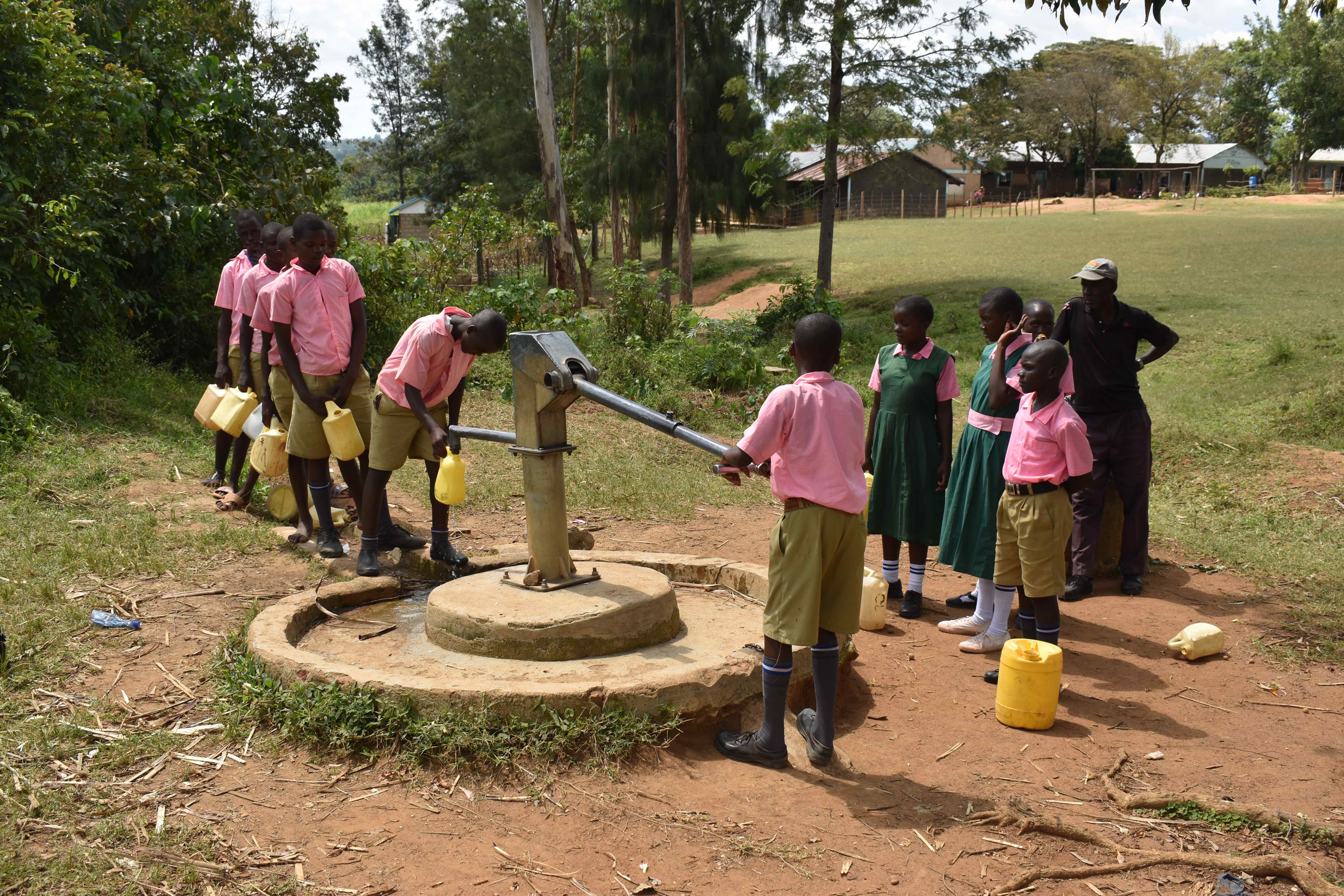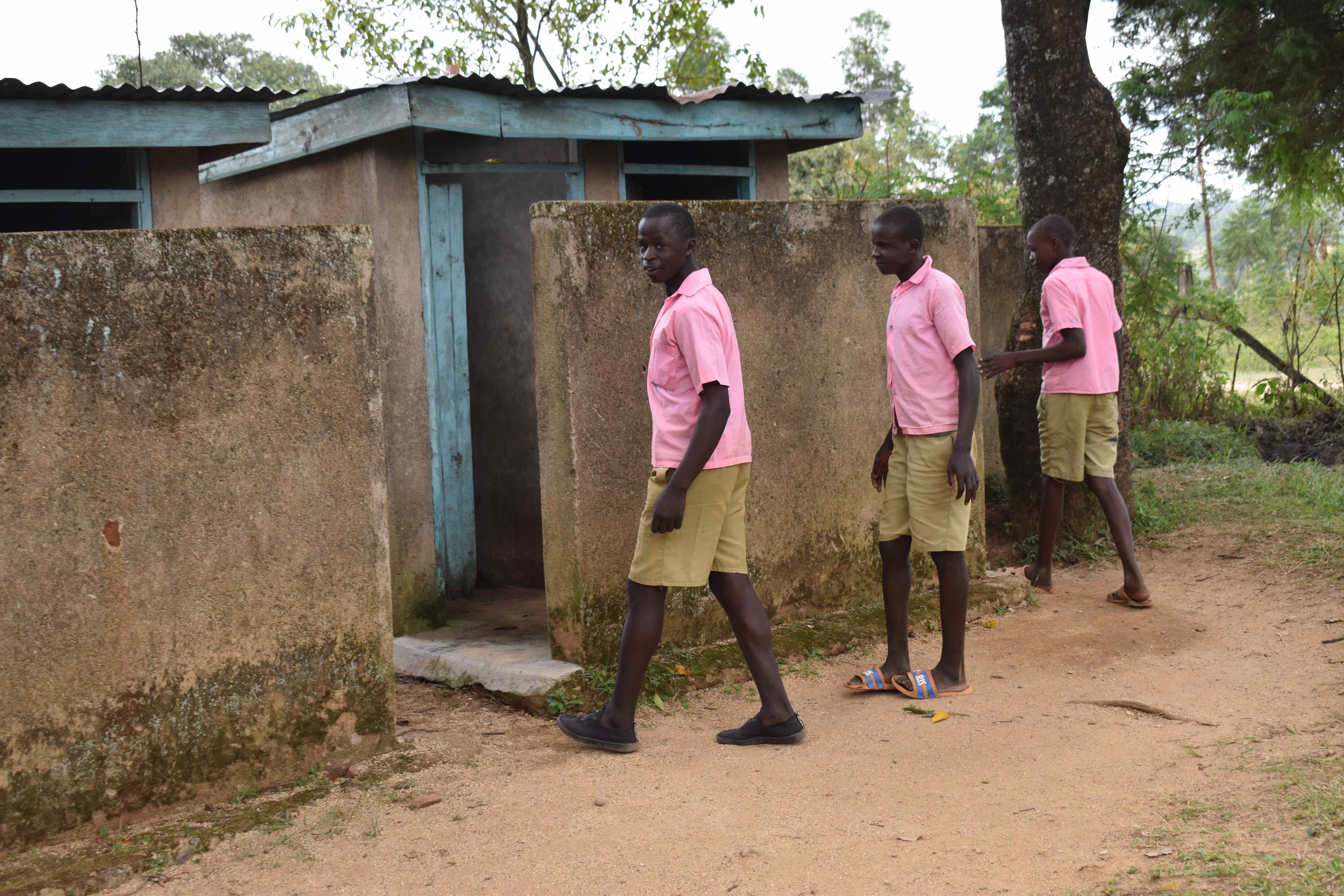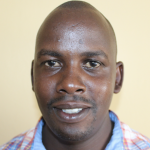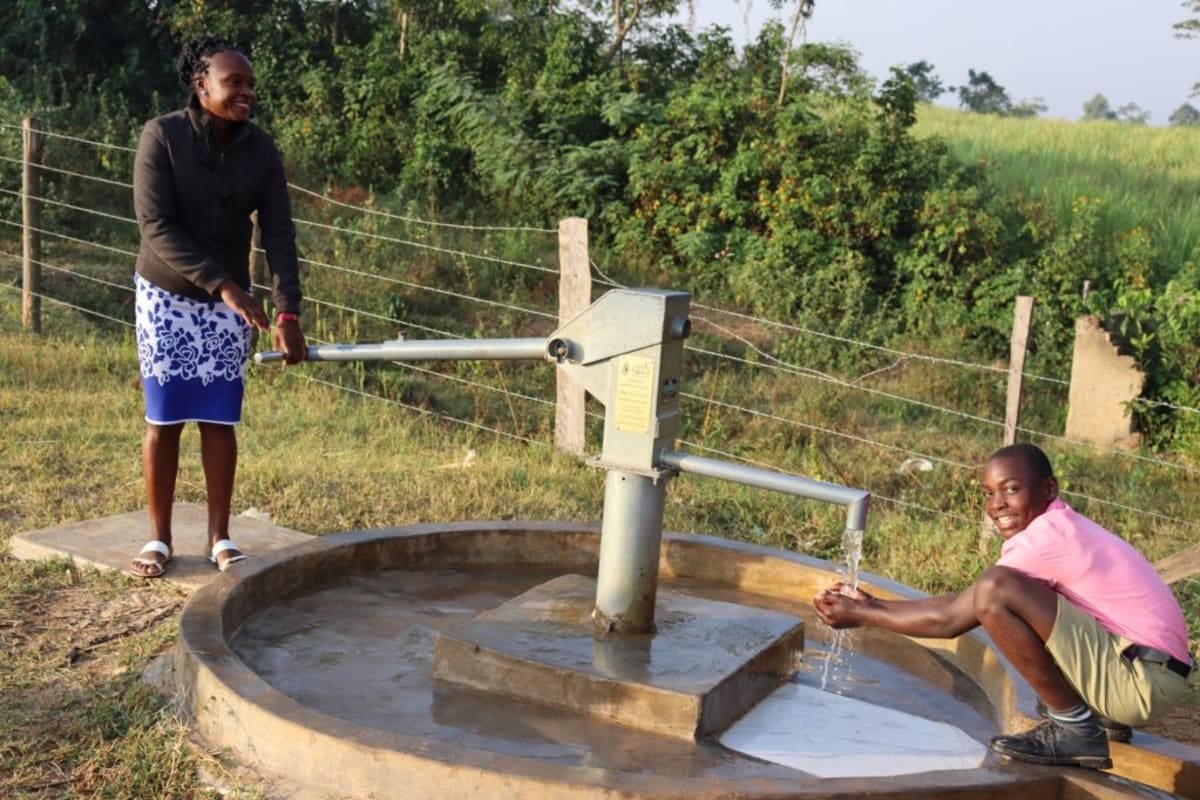Even though there is a well Esokone Primary School’s students can use next door, the children still have to carry a heavy jerrycan full of water from home every day along with their books.
The only source of water available to them during school hours is the neighboring secondary school’s well, which is also shared with community members. Long lines for water inevitably mean students are spending a devastating amount of time standing in the hot sun rather than in class. They typically go last in line, as well.

Grace A. Onyango, the school's Head Teacher, knows there is a problem but is powerless to do anything. "Morning preps or lessons planned to aid teachers [to] cover [the] syllabus on time [have] been in vain due to the water challenges in the school. When students are sent for water used for cleanliness in the morning, they take so long queuing for water because [the] water point has several users who are also in need of this precious commodity."
Besides overcrowding, the hand-dug well the primary school students, secondary school students, and community members all depend on goes dry seasonally. When there is water, drinking it has caused numerous cases of typhoid among students and staff.
"We waste much of our time fetching water. Sometimes we are late to class because of long queues experienced at the water point. Most of us [have] not been performing well in academics as a result," said Brian O., a student, age 11.

The hygiene and sanitation situation at the school is also a challenge. There are not enough pit latrines for the current school population, and latrine cleaning is not done regularly due to lack of water. In addition, there are a limited number of handwashing stations, which means even more lines for the students to wait in and more time spent out of classes.
The proposed well will eliminate the current challenges students are undergoing. Having a clean water source on campus will give students back their valuable time and energy.
What We Can Do:
New Well
We conducted a hydrogeological survey at this school and the results indicated the water table beneath it is an ideal candidate for a borehole well. Due to a borehole well's unique ability to tap into a safe, year-round water column, it will be poised to serve all of the water needs for this school's large population, even through the dry months.
The school will help collect the needed construction materials such as sand, rocks, and water for mixing cement. They will also provide housing and meals for the work team, in addition to providing local laborers. We will complement their materials by providing an expert team of artisans and drilling professionals, tools, hardware, and the hand-pump. Once finished, water from the well will then be used by the school's students and staff for drinking, handwashing, cooking, cleaning, and much more.
We and the school strongly believe that all of these components will work together to improve standards at this school, which will help lead to better student academic performance and will help unlock the opportunity for these students to live better, healthier lives.
Handwashing Stations
There is currently nowhere for students to wash their hands after using the latrines or before eating lunch, let alone the water to do so.
The student health club will oversee the two new handwashing stations we will provide, and make sure they are kept clean and in working condition. The club leaders will fill the handwashing stations with water daily and make sure they are always supplied with a cleaning agent such as soap or ash.
VIP Latrines
Two triple-door latrine blocks will be constructed with local materials that the school will help gather. Three doors will serve the girls and three doors will serve the boys. All of these new latrines will have cement floors that are designed to be easy to use and to clean. And with a rain tank right on school property, there should be enough water to keep them clean.
Training on Health, Hygiene, COVID-19, and More
We will hold a one-day intensive training session with students, teachers, and parents. This training will cover a wide range of topics including COVID-19 symptoms, transmission routes, and prevention; personal and environmental hygiene; and the operation and maintenance of the rain tank, latrines, and handwashing stations. There will be a special emphasis on handwashing.
Our team of facilitators will use a variety of methods to train, including participatory hygiene and sanitation transformation, and asset-based community development. We will initiate a student health club, which will prepare students to lead other pupils into healthy habits at school and at home. We will also lead lectures, group discussions, and provide illustrative handouts to teach health topics and ways to promote good hygiene practices within the school including handwashing and water treatment. We will then conduct a series of follow-up trainings before transitioning to our regularly scheduled support visits throughout the year.

 Borehole Well and Hand Pump
Borehole Well and Hand Pump
 Rehabilitation Project
Rehabilitation Project









































